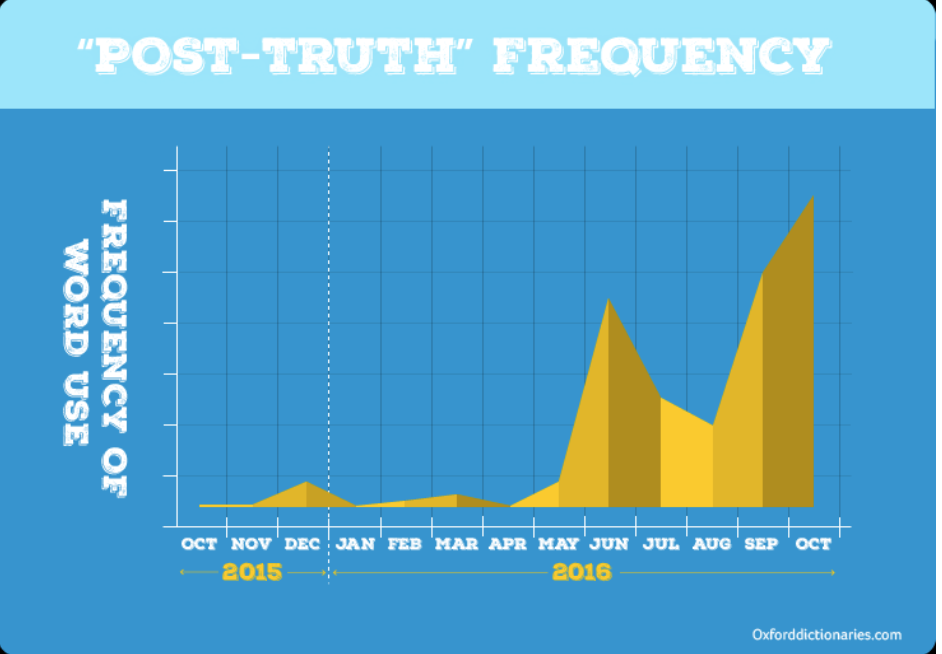
I'm organising a conference for Spring 2018 on 'The Post-Truth Phenomenon.' I've pasted the conference rationale below; click here to register for further updates - and to let me know if you are also organising an event on 'post-truth,' 'alternative facts,' or 'fake news'!
Why should we have a conference on the 'Post-Truth Phenomenon'?
‘Post-Truth’ was the 2016 Oxford Dictionaries word of the year. Announced last November, shortly after the election of Donald Trump in the United States and the referendum on Brexit in the United Kingdom, this selection added fuel to an ongoing mainstream and social media frenzy about fake news and ‘alternative facts’ and concomitant implications for politics, citizenship, journalism, and beyond. The post-truth phenomenon, ‘relating to or denoting circumstances in which objective facts are less influential in shaping public opinion than appeals to emotion and personal belief,’ as defined by Oxford Dictionaries, has been the subject of much instant commentary – though little academic analysis. This conference is an opportunity to consolidate and advance our understanding of the post-truth phenomenon by bringing together scholars across disciplines. At the conference’s core is the view that this is a moment of ‘knowledge controversy,’ namely, a rupture of the naturalised order that provides a window onto the norms, practices, and power relations supporting that naturalised order.

What topics should we address at the conference?
Interrogating ‘post-truth’:
What are the origins of this concept, and on what epistemological assumptions is it based? Who holds these epistemological assumptions, and why? What is the political economy of the discourse of ‘post-truth’? Is this really a qualitatively different epoch? If so, why, and is ‘post-truth’ the best way to conceptualise it? What major shifts heralded this phenomenon?
Post-truth and practices:
(How) does the post-truth phenomenon present a challenge to the orthodox understandings and methodologies of truth? What are the consequent impacts on traditionally fact-oriented practices, such as politics, journalism and human rights reporting? How are the latter changing in the post-truth era, and what are the implications for power relations? Who is (dis)believed by whom, on what, and why? How does accountability work in the post-truth era? How do the amateur/expert and top-down/bottom-up dichotomies intersect with the post-truth phenomenon? Areas of practice to be explored include:
- Politics and citizenship
- The generation of evidence
- Journalism
- Academia
Technologies and truths:
What role has the development and uptake of ICTs had in the rise of the post-truth phenomenon? To what extent are we witnessing a ‘moral panic’ about the adoption of new technologies by new users? What understandings and methodologies of truth are embedded in these technologies’ design?
The post-truth epoch in historical and cultural context:
What historical precedents does this phenomenon have, such as in terms of epistemological shifts and in terms of public discussions about the nature of truth? To what extent is this an Anglo-American versus a global phenomenon? (How) is the post-truth discussion caught up in class-based distinctions around the nature and construction of truth? How is the post-truth phenomenon being interpreted and represented by the culture industry and the arts?
